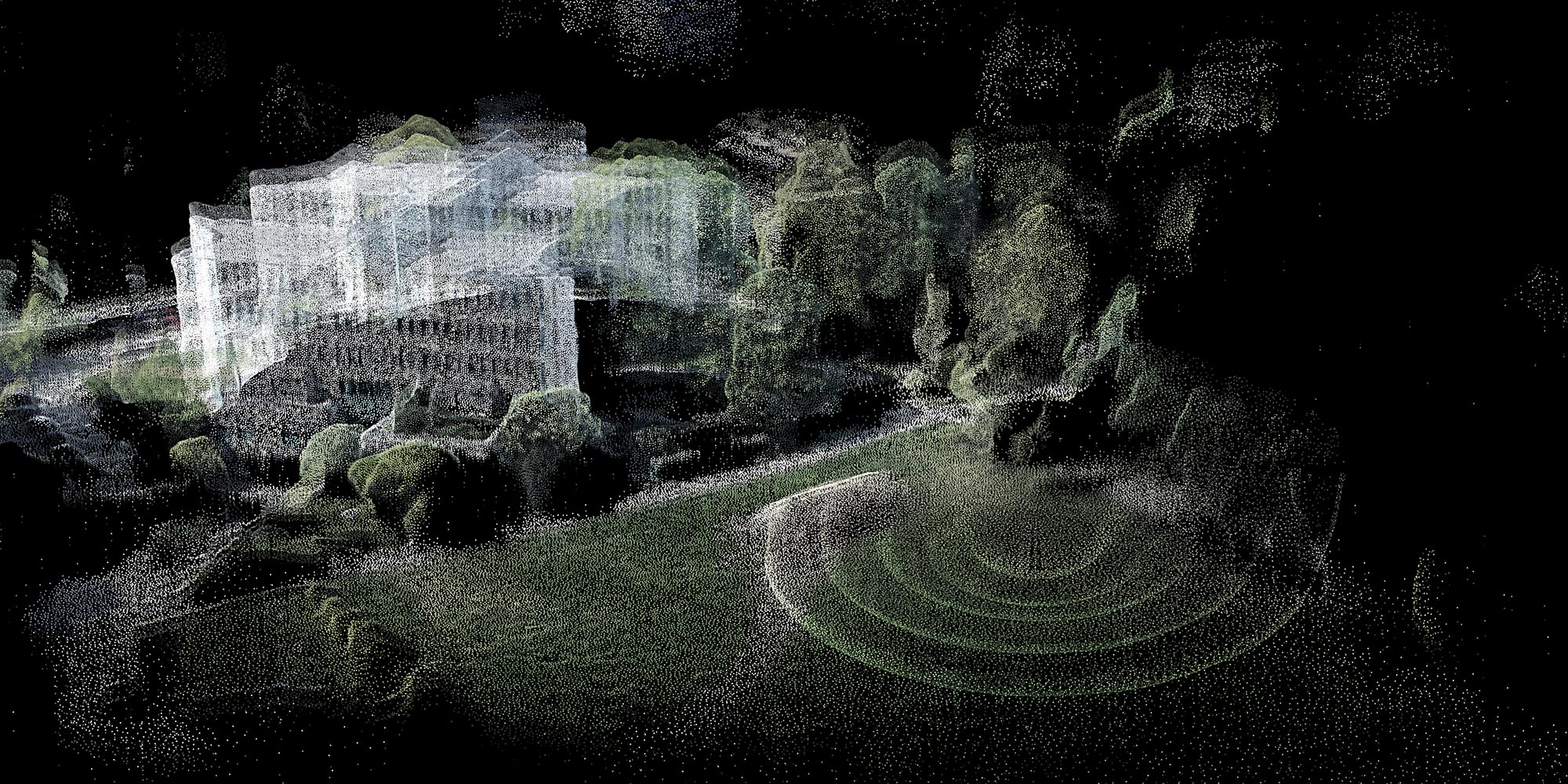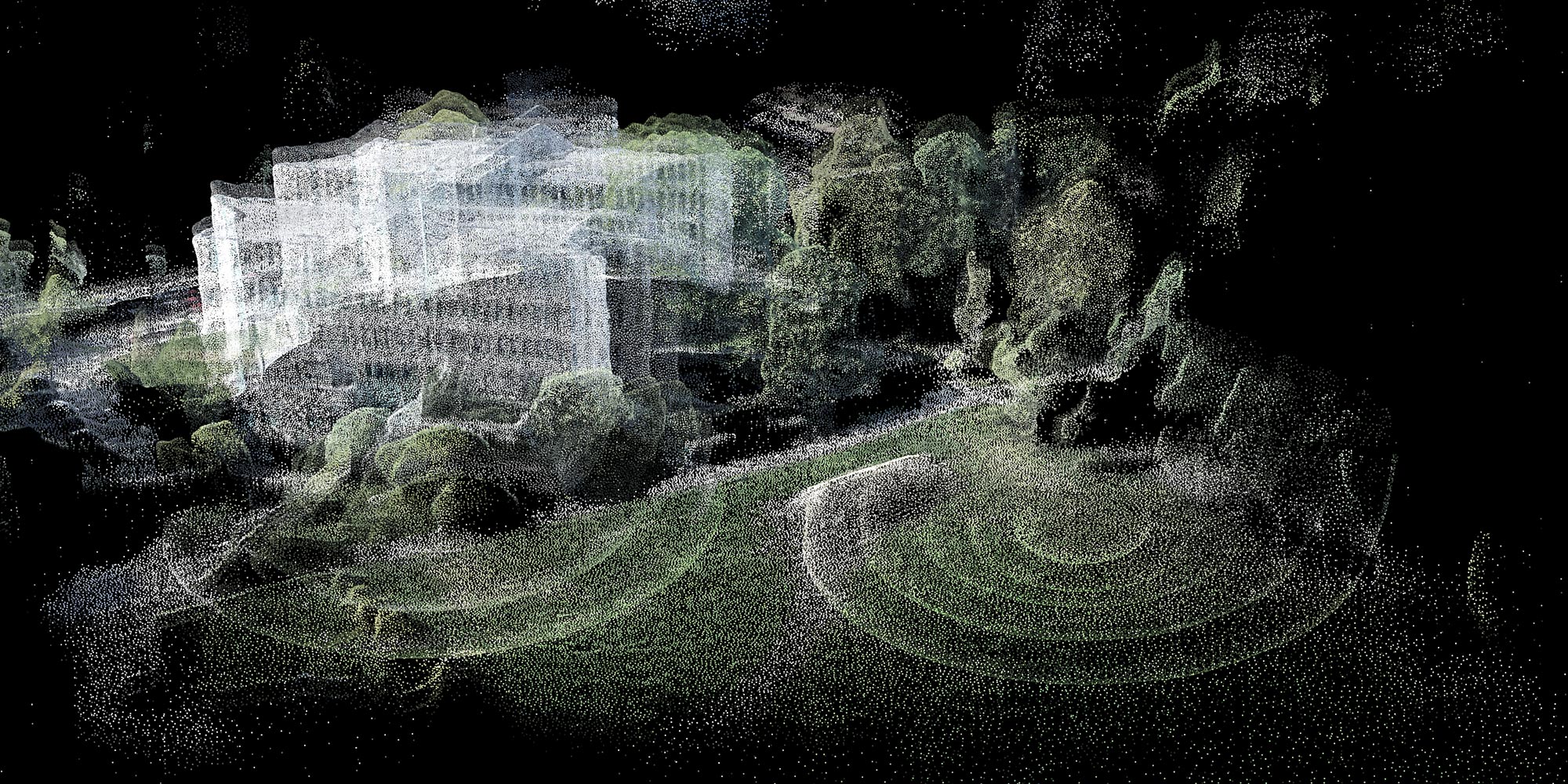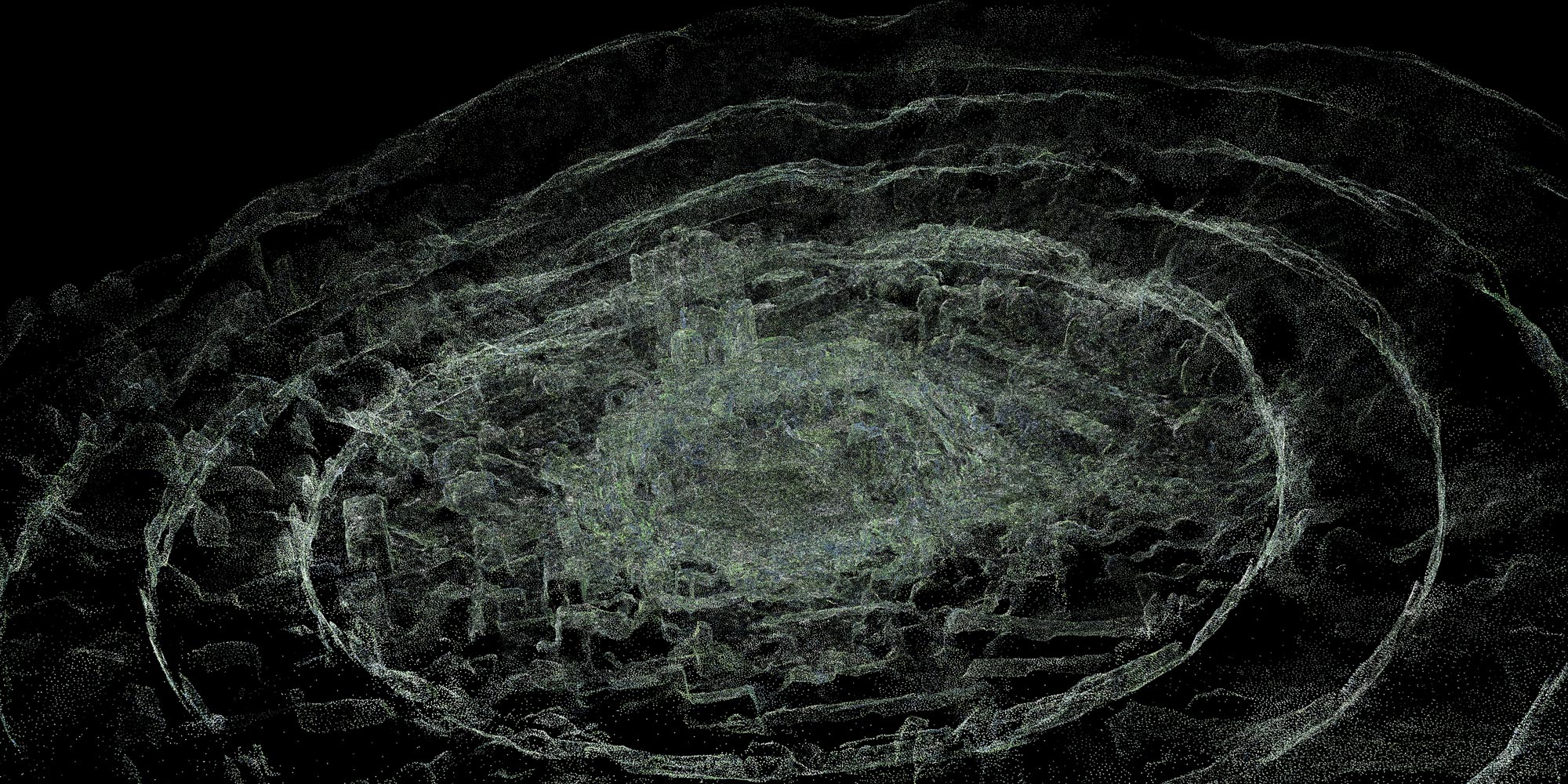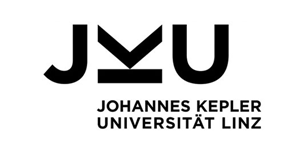The immersive installation site-inflexion invites visitors to take part in a site-specific virtual and acoustic journey. The scenery and soundscapes of the JKU campus are the main actors in the work, alluding to Johannes Kepler’s activity as a landscape mathematician. A laser-scanned topographic survey of Kepler’s gardens becomes an audio-visual environment transfigured by the everyday sounds that inhabit them. Oscillating between urban pollution and phantasmagoria, structures and lawns bend and curve under the effect of sound waves, reaching their inflection point by tipping towards the unknown. In site-inflexion, acoustic parametres manifest in visual distortions, allowing users to experience the spatiality of sound through a multisensory perception of our (urban) environment. A tangible 360° composition that reveals the inextricable interconnectedness of space and sound.
site-inflexion is a transdisciplinary collaboration between the Department of Digital Arts, University of Applied Arts Vienna and the Institute of Technical Mechanics at Johannes Kepler University Linz. Artists and scientists from both universities, actively engaged in creating media art and/or pursuing innovative interdisciplinary research, joined forces to create an interactive multisensory environment for a mobile architectural dome structure. The two research units intertwined their artistic and scientific research methodologies and strategies to develop site-inflexion, an immersive experience in a fulldome environment.
This production involves real-time visualization and sonification software, ubiquitous computing, sensor networks, tracking technologies, photogrammetry, 3D-scanning, microphone arrays, laser-scanning vibrometers, pre-rendered material, and mobile locative technologies.
Screenings
Liminal Spaces / 360˚ Film Screening / Collaboration Projects Alliance Angewandte & JKU / Future Room
Project Credits / Acknowledgements
The project is part of TRANSFORM HRSM, a collaboration between the University of Applied Arts Vienna, Johannes Kepler University, and Donau University Krems; funded by the Austrian Federal Ministry of Education, Science and Research. Department of Digital Arts (Director, Ruth Schnell), University of Applied Arts Vienna: Marian Essl (AT), Jakob Hütter (AT), Johannes Hucek (AT), Martin Kusch (DE); Institute of Technical Mechanics, Johannes Kepler University Linz (Director, Michael Krommer): Andreas Brandl (AT), Alexander Humer (AT), Astrid Pechstein (AT)
Biography
Alexander Humer and Astrid Pechstein are carrying out postdoctoral research at the Institute of Technical Mechanics at Johannes Kepler University. Alexander’s research focus is on nonlinear problems in structural dynamics and continuum mechanics. With a PhD in mathematics, Astrid develops efficient formulae for simulating multi-physical problems in engineering. They share an interest in smart materials and numerical methods.
Andreas Brandl is the Institute’s expert in measurement technology. With a degree in mechatronics, he knows what to do and how to do it, whether vibrations, deformation, or acoustic radiation are to be captured or not.
Marian Essl lives and works in Vienna. He moved into digital arts in 2017, following studies in media technology and experimental media. Under the moniker MONOCOLOR, he explores the dark areas between image and sound through installations and performative artistic works. Besides audiovisual performances, he also creates light, sound and video installations. He is currently focused on interweaving audio and video through generative methods.
Johannes Hucek completed studies at the Department of Digital Arts in 2017, where he explored the interconnections between real and virtual space. His work is focused on theatre, performance, and interactive installations. He has worked in different theaters, as well as with the media perfomance group kondition pluriel and the Department for Digital Arts. His latest projects have led him into mixed reality environments, evolutionary systems, and fulldome installations.
Jakob Hütter is a media artist living in Vienna and the founder of the light art collective
‘Hand mit Auge’ (www.hma.tv). Generative and programmed concepts stand in the field of tension between implicit visual fragments, memories and real physical counterparts. They form the basis for a discourse between digital structures and analogue narrative threads.
Martin Kusch is an interdisciplinary artist, artistic researcher, assistant professor and director of the Fulldome / VR & AR Research Lab at the Department of Digital Arts, University of Applied Arts, Vienna. He is the founder and artistic co-director of the media performance group kondition pluriel. Martin is particularly interested in the transformation processes of electronic media within performative contexts and how digital technologies influence our perception of the body and space. He studied art history, philosophy and painting in Berlin; and media arts in Vienna (www.konditionpluriel.org)
Ruth Schnell is a media artist based in Vienna. She is the head of the Digital Arts Department at the University of Applied Arts Vienna. Her corpus of work includes video installations, interactive video environments, and light installations. She is an expert in dynamic projection and has done pioneering work by investigating the spatial implications of after-image phenomena using LED light sticks. In 1995, she represented Austria at the 46th Biennale di Venezia. Since then, her work has been widely acclaimed and exhibited internationally. ruthschnell.org





